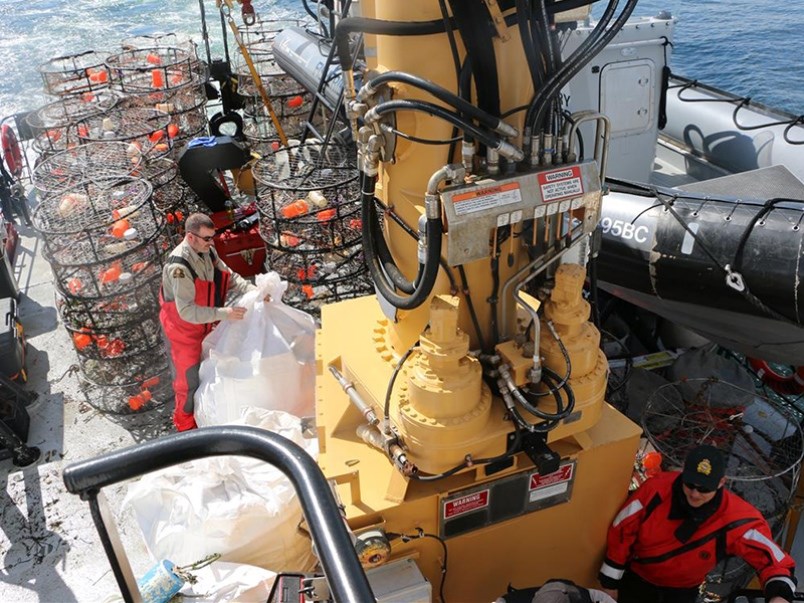Fishery officers have seized more than 300 commercial crab traps in the Powell River area around Savary Island and Harwood Island.
Since the beginning of January 2018, Fisheries and Oceans Canada (DFO) officers in Powell River have been conducting an investigation of two commercial crab vessels.
Because there were so many traps to seize, the action took five days over two weekends to complete in late March and early April 7.
Charges are expected to be filed in May on numerous counts in violation of the Fisheries Act, according to fishery officer Matt Conley. Owners of the boats face serious fines for failing to comply with conditions of their licenses, he said.
“The specific charge is for hauling their gear more than once a week,” said Conley.
Commercial crabbers are only allowed one turnover of their traps once per week between January 15 and April 15 every year, he added.
“Sometimes when the price goes up it's pretty lucrative so they start hauling them more than once a week, and in some cases three times a week,” said Conley. “This is against regulations and that's what turned us onto this investigation.”
This is a particularly important time of year in the growth cycle of the Dungeness crab, when its old shell is cast off.
According to the DFO, the new shell is in a soft-shell condition for the first several weeks and the crab is highly vulnerable to injury or death as a result of trapping and handling.
The same boats had been on fishery officers’ radar in previous years.
Conley and fellow officer Ben Rahier became suspicious of the two vessels when one had turned off its onboard electronic monitoring system. The electronics track the vessel’s fishing activity and it is a violation of regulations if the equipment is not operating at all times.
“One of the vessels has been warned for the exact offence before,” said Conley.
Conley said the investigation included two different licenses, two different owners, two different vessel masters and “it just so happens they were doing pretty much the same thing.”



